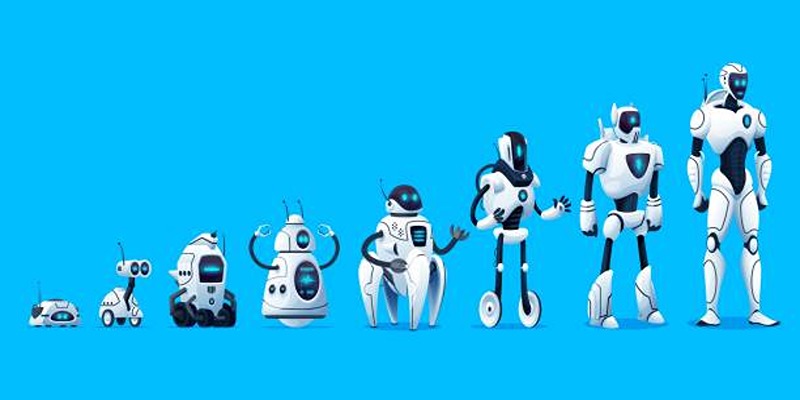Artificial intelligence is advancing faster than many had predicted. One of the big artificial intelligence firms, Anthropic, has unveiled new guidelines. These rules seek to allay rising worries about artificial intelligence privacy, safety, and moral behavior. Many analysts think the new AI standard by Anthropic might shape the next laws. Critics argue that the rules create new problems instead of solving existing ones. These days, ethical standards and AI privacy take the front stage above all else. Realizing the whole influence of Anthropic's action will take time. Early reactions already influence public and business attitudes.
Additionally, regulatory agencies are under intense observation. Concerns about anthropic artificial intelligence will probably take the front stage for legislators. The adoption of artificial intelligence will also increase demand for clear, equitable regulations. Anthropic's new approach emphasizes the importance of balancing responsibility with creativity.

A Closer Look at Anthropic's New AI Standards
Anthropic presented thorough rules for controlling artificial intelligence outputs and behavior. The criteria mostly stress responsibility and openness. Businesses applying Anthropic's ideas must now openly show their data handling policies. They must also guarantee fair treatment for all users from diverse backgrounds. Ethical guidelines and AI privacy require systems to handle private data sensibly. When using AI-powered tools, users must manage their data clearly. Anthropic wants builders to avoid biased or negative results.
Furthermore, explainable artificial intelligence models that are simpler for audit are heavily pushed. Major installations now call for transparency reports. Companies will have to prove how their models complement moral objectives. Anthropic's action underscores the demand in the sector for improved self-regulation. It seeks to avoid government crackdowns that might impede creativity. Many business leaders are observing to see if others will follow comparable guidelines. The knock-on consequences might be vast all over the artificial intelligence universe.
Growing Privacy Concerns in the AI Industry
Privacy has always been a main concern in technology. Artificial intelligence makes privacy issues more complex. The most recent guidelines from Anthropic try to provide more robust user data protection. Ethical norms and artificial intelligence privacy call for more than just basic security or encryption. These days, data-collecting techniques are being criticized more. Businesses have to restrict the amount of personal data AI systems compile.
Users should be aware of the data-collecting process and its usage. Anthropic also promotes anonymizing to guard identities more successfully. Critics counter that, in some instances, the regulations might not go far enough. Stronger policies help to lessen the major threat that data breaches still pose. Cybersecurity experts caution that no system is perfect. Laws are required to apply these guidelines equitably across all businesses. Without enforcement, the new guidelines might be considered as merely voluntary recommendations. Real reform in artificial intelligence privacy policies calls for increased industry-wide collaboration.

Ethical Dilemmas Raised by New Standards
Although many agree with Anthropic's revised policies, ethical discussions are getting quite hot. Some analysts contend the regulations generate fresh moral conundrums rather than answers for old problems. AI systems nowadays have to choose which outputs are moral or immoral. But those limits are defined by who? What is acceptable varies between different civilizations. AI ethical norms and privacy must strike a mix between cultural sensitivity and universal principles. Automation bias presents still another conundrum.
If systems seem "ethical," people could unquestioningly trust AI conclusions. Though anthropic rules advocate human supervision, will it be sufficient? Strict rules have experts concerned about unanticipated results. Censoring material, for instance, can cause charges of discrimination or bias. Designing ethical frameworks for artificial intelligence calls for caution on behalf of companies. The shape of these systems should be more influenced by public opinion. Otherwise, AI methods could unintentionally help to accentuate already existing disparities. Anthropic's standards draw attention to the difficult issues facing the sector today.
Regulatory Responses and Global Impact
Globally, governments are closely observing Anthropic's actions. Strict artificial intelligence rules already exist in some nations. Others are hurrying to draft new legislation while keeping pace with inventions. Regulatory issues related to anthropic artificial intelligence will probably force politicians to act sooner. The ethical AI development approach for Europe could spread around the world. The guidelines of anthropic might affect the language of upcoming rules. Should more businesses adopt Anthropic's lead, changes across the sector might occur rapidly. Different countries could provide difficulties, though. International harmonizing of rules will be challenging yet vital.
Anthropic's rules stress voluntary compliance above legal obligations. Many professionals contend that actual change cannot come from voluntary actions alone. Enforcement authorities must act to ensure fair standards worldwide. Industry alliances and trade associations might assist in closing legal gaps. The worldwide debate on artificial intelligence ethics is just getting started. Anthropic's activities might mark a turning point in global policy.
Potential Risks and Unintended Consequences
Though Anthropic's goals seem noble, several issues still need to be addressed. Small businesses run a danger in trying to satisfy the new criteria. For startups, compliance expenses could drive innovation beyond reach. Bigger companies with more resources could be even more dominant in the market. Anthropic's new AI standard may worsen already existing tech inequality. Legal uncertainty adds still another risk. Businesses do not know how to apply or understand the policies.
Confusion might impede new research initiatives and hold down the acceptance of artificial intelligence. There is also the risk of surface-level compliance. Some companies may have policies on paper but fail to apply them in actuality. Regulatory bodies have to be alert to find offenders. Anthropic rules must be regularly updated to address emerging threats. Technology changes rapidly; standards also have to change equally rapidly. Independent reviewers and public watchdogs should take the front stage. The foundation of artificial intelligence development has to remain responsible for innovation.
Conclusion
The new AI standard from Anthropic represents a significant step towards solving contemporary technological issues. Clearly, in the future, stronger AI privacy and ethical norms will be vital. Many analysts feel that Anthropic AI regulatory issues will drive necessary worldwide policy reforms. Still, much relies on how strictly these policies are followed. Voluntary standards might not generate actual industry changes without robust control. The adoption of artificial intelligence will depend much on public trust. Although new AI standards by Anthropic bring optimism, they also create new ethical concerns. Working together, governments, businesses, and people will help to shape artificial intelligence responsibly.











